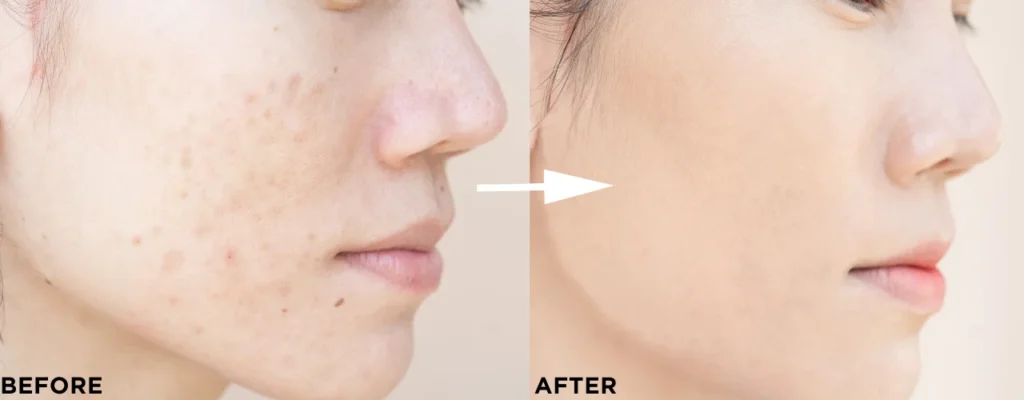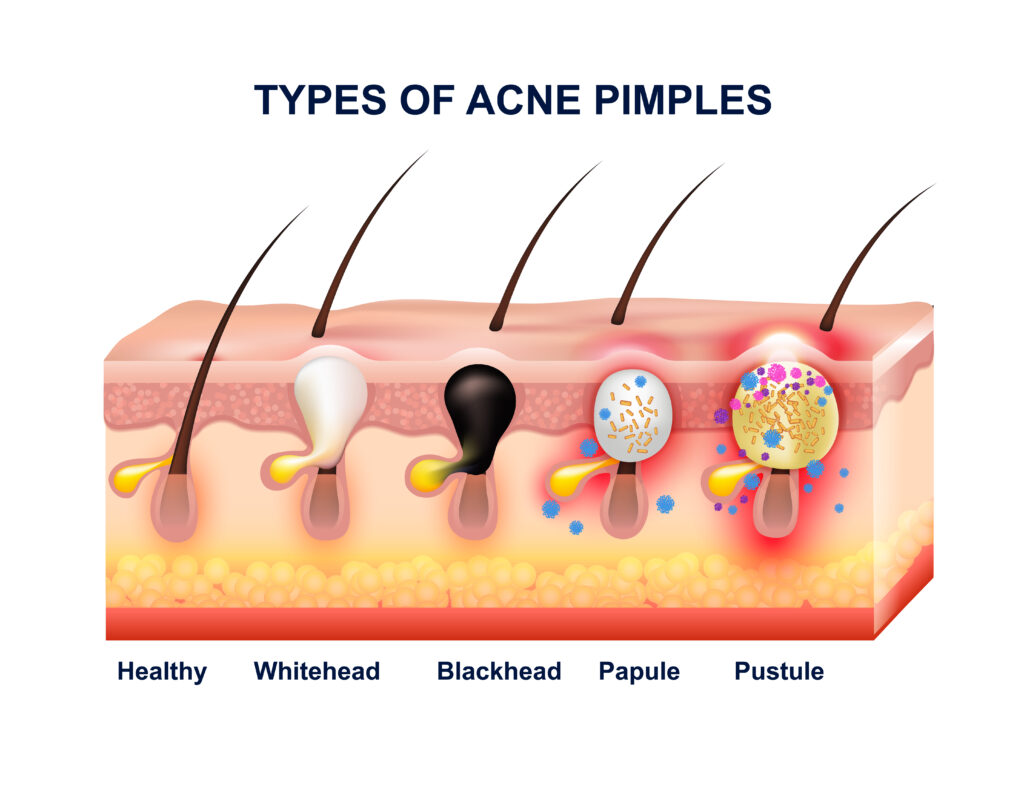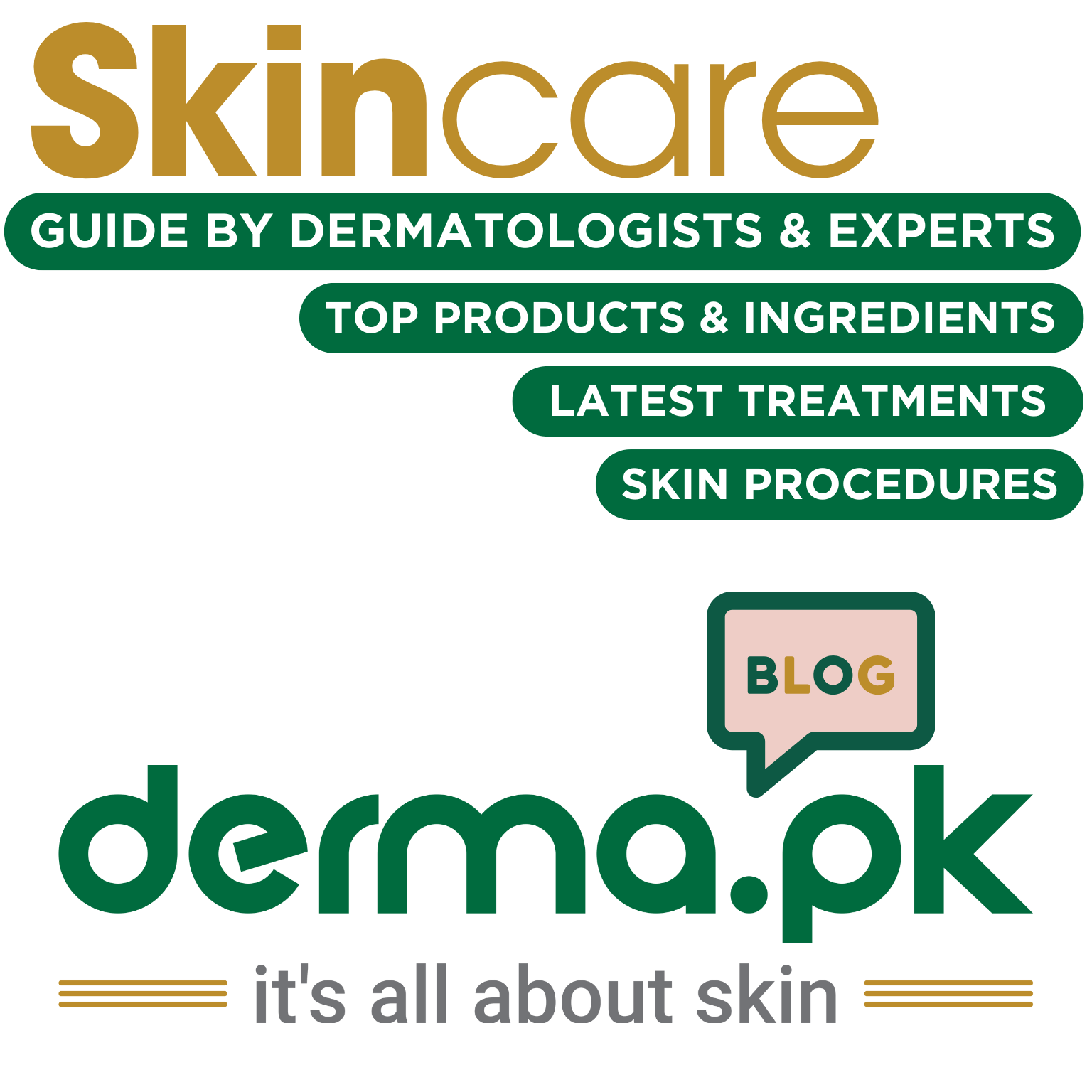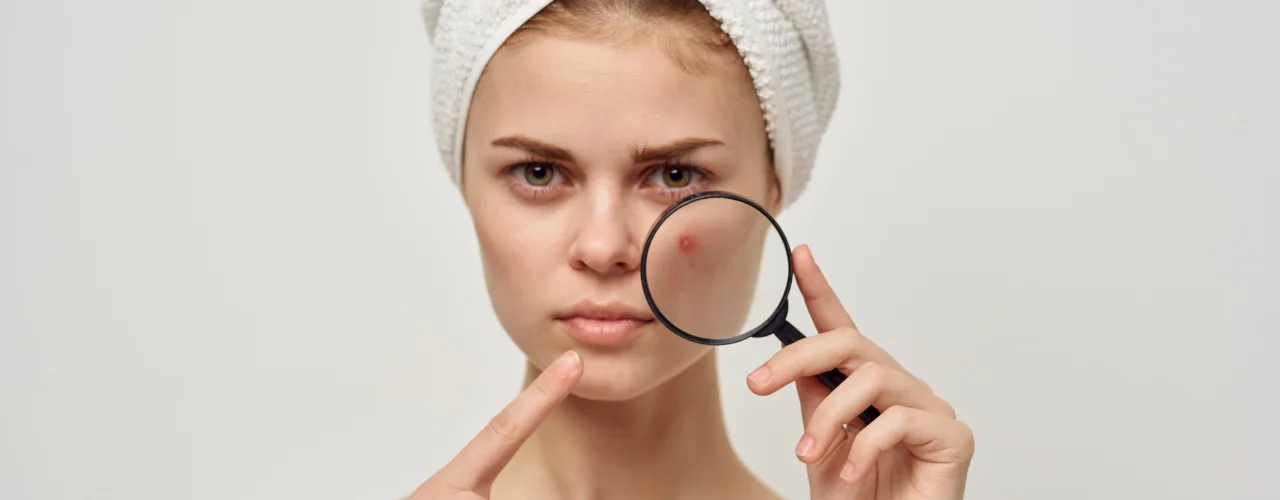Acne Pimples:
Oil (sebum), dead skin cells, and bacteria clog hair follicles, causing acne pimples. It usually causes whiteheads, blackheads, papules, pustules, nodules, and cysts on the face, neck, chest, back, shoulders, and other areas.
Characteristics of Acne:
- Comedones: These are non-inflammatory lesions and can be open (blackheads) or closed (whiteheads). As clogged material oxidizes, blackheads show as dark patches on the skin, whereas whiteheads are closed, flesh-colored lumps beneath the skin.
- Inflammatory Lesions: Inflammatory acne includes papules, pustules, nodules, and cysts. Papules and pustules are red, inflamed bumps filled with pus. Deeper, painful nodules give way to bigger, pus-filled cysts that leave their mark.
Causes of Acne Pimples:
- Excess Sebum Production: Overactive sebaceous glands can produce more oil than necessary, leading to clogged pores.
- Bacterial Infection: The bacterium Propionibacterium acnes (P. acnes) can thrive in clogged pores, causing inflammation and acne breakouts.
- Hormonal Changes: Fluctuations in hormone levels, such as during puberty, menstruation, pregnancy, or stress, can increase sebum production, contributing to acne.
- Genetics and Lifestyle Factors: Family history, diet, stress, certain medications, and exposure to certain chemicals or pollutants can influence acne development.

Treatment:
Treatment for acne varies depending on its severity and type. Dermatologists typically recommend:
- Topical Treatments: Creams, gels, or lotions containing ingredients like retinoids, benzoyl peroxide, or salicylic acid to unclog pores and reduce inflammation.
- Oral Medications: Antibiotics, hormonal therapies, or isotretinoin prescribed for severe or persistent acne.
- Procedural Interventions: Dermatological procedures like chemical peels, laser therapy, or extraction to manage acne and minimize scarring.

Types of Acne Pimples:
- Whiteheads (Closed Comedones): These appear as small, flesh-colored bumps with a white center due to trapped sebum and dead skin cells beneath the skin’s surface. They typically don’t protrude from the skin.
- Blackheads (Open Comedones): Blackheads are small, dark spots visible on the skin’s surface. They result from pores clogged with oil, dead skin cells, and bacteria, which oxidize and turn black upon exposure to air.
- Papules: These are small, red bumps that develop when the walls surrounding the skin pores become inflamed due to excess oil and bacteria. Papules are typically tender to touch.
- Pustules: Pustules are similar to papules but are filled with pus, giving them a white or yellowish appearance at the center. They often appear as red bumps with white or yellow heads on top.
Can lifestyle changes like diet or exercise help manage acne?
Diet and Acne Pimples:
- Balanced Diet: Consuming a well-balanced diet rich in fruits, vegetables, whole grains, and lean proteins provides essential nutrients that support overall skin health.
- Avoid Trigger Foods: Some individuals find that certain foods can trigger acne breakouts. These trigger foods vary from person to person but may include high-glycemic foods (such as sugary and processed items), dairy products, and foods high in saturated fats.
- Hydration: Staying hydrated by drinking an adequate amount of water can help maintain skin hydration and potentially aid in reducing acne.
Exercise:
- Sweating and Toxin Removal: Regular exercise can promote sweating, which helps in eliminating toxins from the body. This detoxification process might contribute to clearer skin for some individuals.
- Stress Reduction: Exercise is known to reduce stress levels. High-stress levels can exacerbate acne in some people, so managing stress through physical activity might indirectly help in managing breakouts.
Skincare Routine:
Apart from diet and exercise, maintaining a consistent and suitable skincare routine is crucial for managing acne:
- Gentle Cleansing: Use a mild cleanser suitable for your skin type to cleanse the face twice a day. Avoid harsh scrubbing, which can irritate the skin and worsen acne.
- Non-comedogenic Products: Choose skincare and cosmetic products labeled as “non-comedogenic” to reduce the risk of pore-clogging and acne development.
- Sun Protection: Protect your skin from harmful UV rays by using sunscreen with a non-greasy formula, as some acne medications or products may increase sun sensitivity.
Consultation with a Professional:
While lifestyle changes like diet and exercise can play a role in managing acne for some individuals, it’s essential to consult with a dermatologist or skincare professional. They can provide personalized guidance, recommend suitable skincare products, and suggest dietary adjustments tailored to your specific skin concerns and needs. Professional advice ensures an integrated approach to managing acne for optimal results.
Scientific Findings:
Recent scientific research in dermatology has revealed intriguing insights into acne development and management. Studies exploring the role of diet in acne have presented varying findings regarding certain foods’ potential impact on acne severity. While more research is needed to establish definitive connections between diet and acne, evidence suggests that low-glycemic diets rich in fruits, vegetables, and whole grains may benefit some individuals by reducing acne-related inflammation.
Additionally, advancements in skincare formulations and treatments continue to offer promising solutions. Innovations in topical agents, including retinoids, salicylic acid, and benzoyl peroxide, showcase improved efficacy in unclogging pores and reducing acne lesions. Furthermore, emerging procedural interventions such as laser therapy, chemical peels, and photodynamic therapy exhibit potential in managing acne and minimizing scarring.
These scientific endeavors propel the dermatological field toward more effective and personalized approaches in understanding and treating acne, paving the way for enhanced skincare solutions tailored to individual needs.
Conclusion:
In the pursuit of clearer, healthier skin, understanding acne’s complexities and exploring diverse treatment avenues are pivotal steps. Acne, a common skin concern affecting individuals of varying ages, manifests in different forms and severities, influencing one’s self-esteem and overall well-being. Through this exploration, we’ve unraveled the multifaceted nature of acne, encompassing its types, causes, and potential treatment strategies.
While excess oil production, bacterial infection, hormonal changes, genetics, and lifestyle affect acne’s development, managing it often requires a comprehensive approach. Dermatologists diagnose and customize topical, oral, and procedural treatments. Lifestyle changes like eating well, staying hydrated, exercising, and using a good skincare routine may help some people manage acne.
Skincare professionals provide personalized care and targeted acne management, helping people regain confidence in their skin.
Derma And Dental Clinic, Bahria Town Lahore
Derma and Dental Clinic, your premier destination for comprehensive skincare solutions and top-tier dental care. At our clinic, our esteemed dermatologists specialize in effectively treating all types of acne, utilizing advanced techniques and personalized treatment plans tailored to your unique skin concerns. Whether it’s whiteheads, blackheads, cysts, or nodules, our expert team is dedicated to providing exceptional care for clearer, healthier skin. Contact us today at our UAN number 0304-1115000 or reach out via WhatsApp at 0320-5999650 to schedule an appointment. Derma and Dental Clinic in Bahria Town Lahore offers expert dermatology and a holistic acne treatment plan.


[…] Pimples, Papules, Pustules: A Deep Dive into the World of Acne Treat Acne Properly in 6 Steps: Tips for Clearer Acne Prone Skin […]